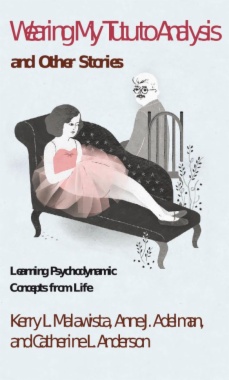There couldn't be a more appropriate method for illustrating the dynamics of psychoanalysis than the vehicle of story. In this book, Kerry L. Malawista, Anne J. Adelman, and Catherine L. Anderson share amusing, poignant, and sometimes difficult stories from their personal and professional lives, inviting readers to explore the complex underpinnings of the psychoanalytic profession and its esoteric theories. Through their narratives, these practicing analysts show how to incorporate psychodynamic concepts and identify common truths at the root of shared experience. Their approach demystifies dense material and the emotional consequences of deep clinical work. The book covers psychodynamic theory, the development of ideas, various techniques, the challenges of treatment, and the experiences of trauma and loss. Each section begins with a brief memoir by one of the authors and leads into a discussion of related concepts. Overall the text follows a developmental trajectory, opening with stories from early childhood and concluding with present encounters. The result is a unique approach enabling the absorption of psychodynamic concepts as they unfold across the life span.
- CONTENTS
- AKNOWLEDEMENTS
- INTRODUCTION
- PART ONE: Theory
- 1. POPPED
- 2. PLAY WITH ME
- 3. THE CALLING
- 4. NEW FURNITURE
- 5. WOODBRIDGE
- 6. WEARING MY TUTU TO ANALYSIS
- PART TWO: Development
- 7. ODE TO A TISSUE
- 8. MOMMY BROKE IT!
- 9. BUMPS AND ALL
- 10. FIRST PARTY
- 11. CUSTODIAL CARE
- 12. NESTLED
- PART THREE: Technique
- 13. GRAHAM CRACKERS
- 14. IN MY EYES
- 15. HOW TO SAFE A LIFE
- 16. FRIENDS OF THE HEART
- PART FOUR: Treatment Challenges
- 17. JOINING THE PAIN
- 18. THE TAXI
- 19. MY BEST FRIEND, FIONA
- PART FIVE: When the World Shatters
- 20. INTO THE KITCHEN
- 21. THE BIRD BOX
- 22. PHANTOM LIMB
- 23. THE QUESTION
- CONCLUSION
- REFERENCES
- INDEX

